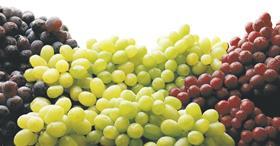
A broad coalition of the Delaware River port community has petitioned the US Secretary of Agriculture to suspend for up to 20 days in April the restrictions on all table grapes imported from Chile and to clarify that the Crimson Seedless variety will be exempted from those restrictions this year.
The petition – signed by representatives of the Ports of Philadelphia, Gloucester and Wilmington – asks for a 10- to 20-day suspension from 10 April through 30 April of the Table Grape Import Regulation 4, which annually limits Chilean grapes imported after 10 April.
The 30 April date would coincide with a restriction date regularly used in past years, according to a press release.
The request is being made on humanitarian grounds following the 27 February earthquake in Chile.
Without the temporary suspension of the import regulations, the port group claims Chile will lose the ability to distribute its crop given the disruption to the harvest (estimates put the season at 10-20 days late) and shipments, which take 10 to 14 days to arrive in the US.
The Delaware port community claims Chilean table grape harvest is also much smaller than last year due to climatic conditions, which will leave fruit in short supply and at higher-than-normal prices for consumers.
Meanwhile, table grape crops from Mexico and Southern California are expected to arrive six to 12 days later than normal, according to port operators, leaving Chile as the only source of widely available seedless grapes to fill the gap in April.
“The fact that all three ports, which compete with each other, are in agreement on this matter shows how important the topic really is,” said Ricardo Maldonado, executive director of the Chilean & American Chamber of Commerce of Greater Philadelphia. “There’s no downside here in being Good Samaritans, and all the ports can benefit, too.”
Leo Holt, President of Holt Logistics Corp. added: “For myself and my family this is a personal matter. My father, Tom, and I are recipients of the Friend of Chile award, which belies the fact that all of our people and those of the port are Friends of Chile, especially in this moment of crisis. The most natural thing in the world for the US to do is extend the same kind of brotherhood to those in need. It’s what we do.”
Tom Keefer, deputy executive director of the Diamond State Port Corp. in Wilmington, agreed that this is the right thing to do. “The Chilean government and agricultural interests there and have the chance to provide much-needed relief,” he explained.
Aside from the humanitarian grounds, the request will also benefit US consumers via lower prices and a larger supply and will benefit the local port community – nearly 65 per cent of all fruit shipments from Chile enter the US through the three Delaware River ports.
“The still struggling economy has really hindered port businesses,” said Dennis Rochford, president of the Maritime Exchange for the Delaware River & Bay. “Here’s an opportunity to make good use of an underutilised resource, ultimately helping the Delaware Valley, not to mention our Chilean friends and business partners.”



